- Discover Episcopal
- Admission
- Our Program
- Athletics
- Arts
- Spirituality
- Student Life
- Support Episcopal
- Alumni
- Parent Support
- Knightly News
- Contact Us
- Calendar
- School Store
- Lunch Menu
- Summer Camps
- Knight Under the Stars
- Footloose
« Back
Faculty/Staff Deploy Futuristic Tech to Engage Tomorrow's Leaders
October 21st, 2021
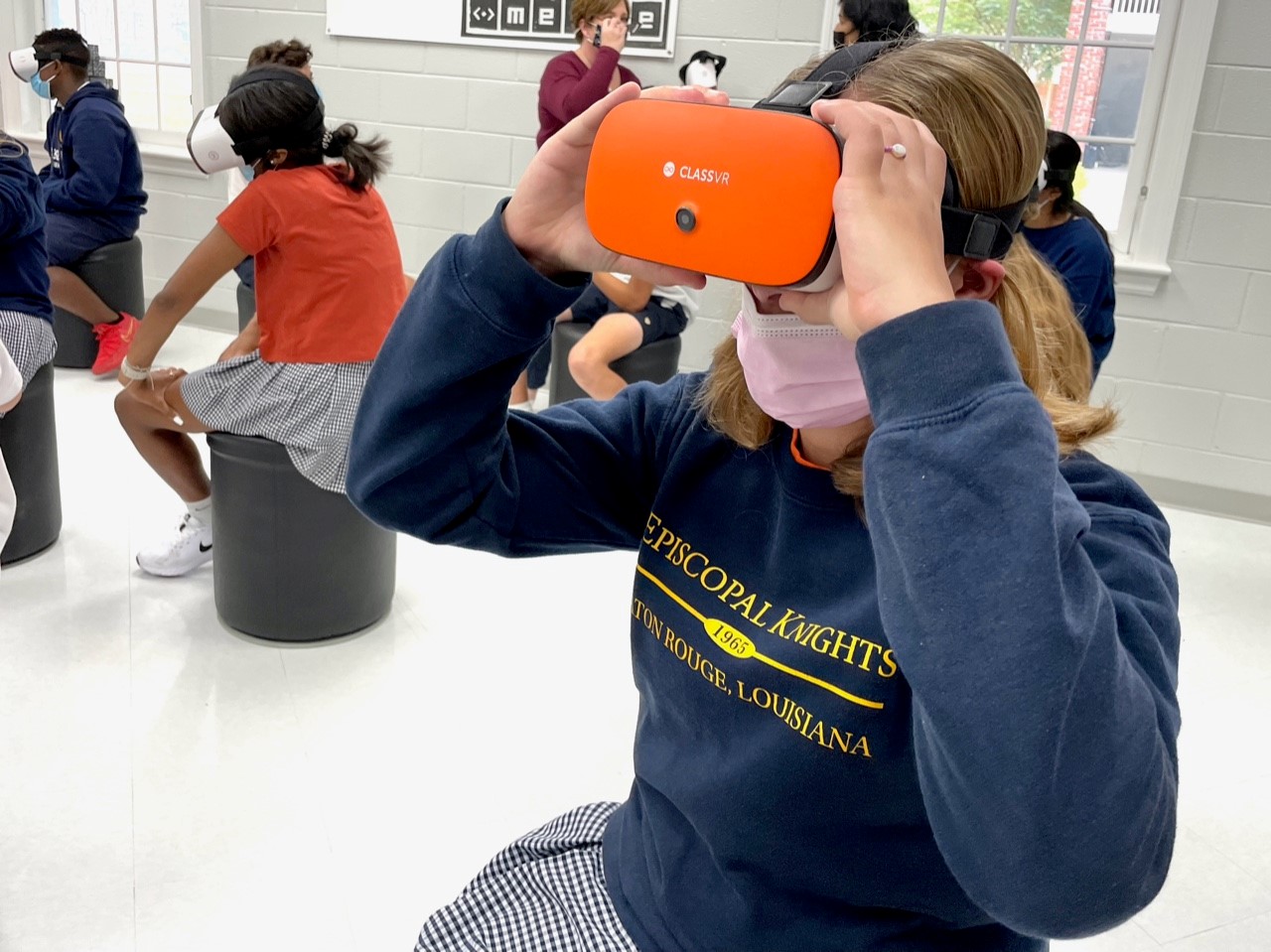
As eighth grade science students study the novel “The Martian” by Andy Weir, their imaginations transport them to Mars. Guided by science teacher Shyamala Alapati, students discuss what they’re reading and the possibilities of life on the red planet. Throughout this semester, students will conduct experiments and participate in a variety of hands-on learning opportunities inspired by the character Mark Watney and in line with the science curriculum. One recent activity highlights the possibilities within the Spatial Learning Lab in the QUEST Center in Foster Hall.
In a room overlooking the Middle School quad, students sit in swiveling chairs with virtual reality goggles strapped to their faces. This latest technology is a far cry from the Viewfinder toys some may remember from childhood. The ClassVR headsets use virtual reality simulation to create the Mars landscape with graphics good enough to make the viewer feel like they are actually there. “Your depth perception is off right now,” advises Academic Technology Coordinator Brandi Bergeron as students begin to explore the red planet. With a slight tilt of the head, students adjust their view to explore the landscape further. Alapati reminds them to look up and down as the landscape is a full 360-degree experience.
Episcopal purchased a set of 24 virtual reality headsets to equip the Spatial Learning Lab with an out-of-the-classroom experience. The lab provides digital experiences using three-dimensional assets and environments to facilitate embodied and immersive learning, and the experience is certainly immersive. In the case of the Mars exploration, Alapati deployed the technology to whisk students to a place lightyears away. Students seemed to enjoy exploring the Martian world, as well as the Rover testing area, Johnson Space Center and the new SpaceX Dragon capsule. “It looks like a desert.” “It looks like Fortnite.” Incredibly, students visited these places all while sitting comfortably in the QUEST Center on Woodland Ridge Boulevard in Baton Rouge, Louisiana.
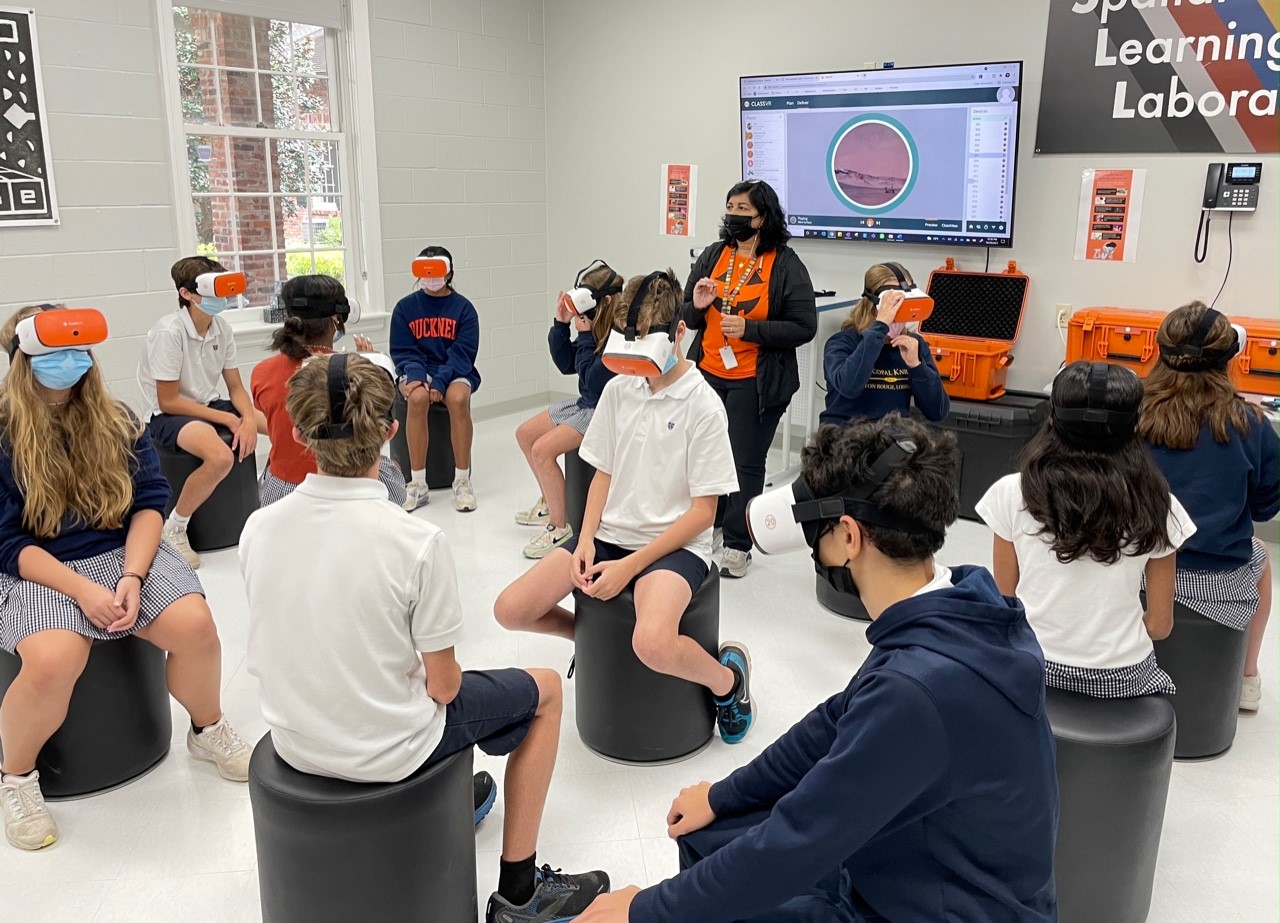
Educational experiences in virtual reality aren’t only for exploring other worlds. Bergeron works with teachers in a range of subjects to find complementary experiences for whatever students are studying. For example, students have used augmented reality to explore the human body through the Mr. Body experience. Technology Director Michelle Chenevert says Mr. Body is the “AR version of the game Operation.” She says augmented reality capabilities allow students to feel like they are holding the organs in their hands, turning them to examine all angles. A pop-up text box also appears with a click to provide an interactive description of the organ. Where virtual reality fully immerses the learner in an environment, augmented reality provides a simulated environment combined with real-world surroundings. Essentially, augmented reality allows students to hold Mars in the palm of their hand for further examination, whereas virtual reality allows them to feel like they are walking across the dusty surface of the planet.
The Spatial Learning Lab is designed to support augmented reality, virtual reality and mixed reality learning experiences. Bergeron says one reason such experiences are so beneficial for schools is because of the attention it garners from students. “It’s a hook,” she says. “It gives that wow factor.” Bergeron says this is especially true for Middle School students who may be more challenging to engage. In addition to engaging students, Bergeron says there are several additional reasons why teachers are turning to technology.
1. Improvement in student outcomes.
2. A memorable learning experience.
3. Helps with understanding more complex topics.
4. Creates connections to life through simulation.
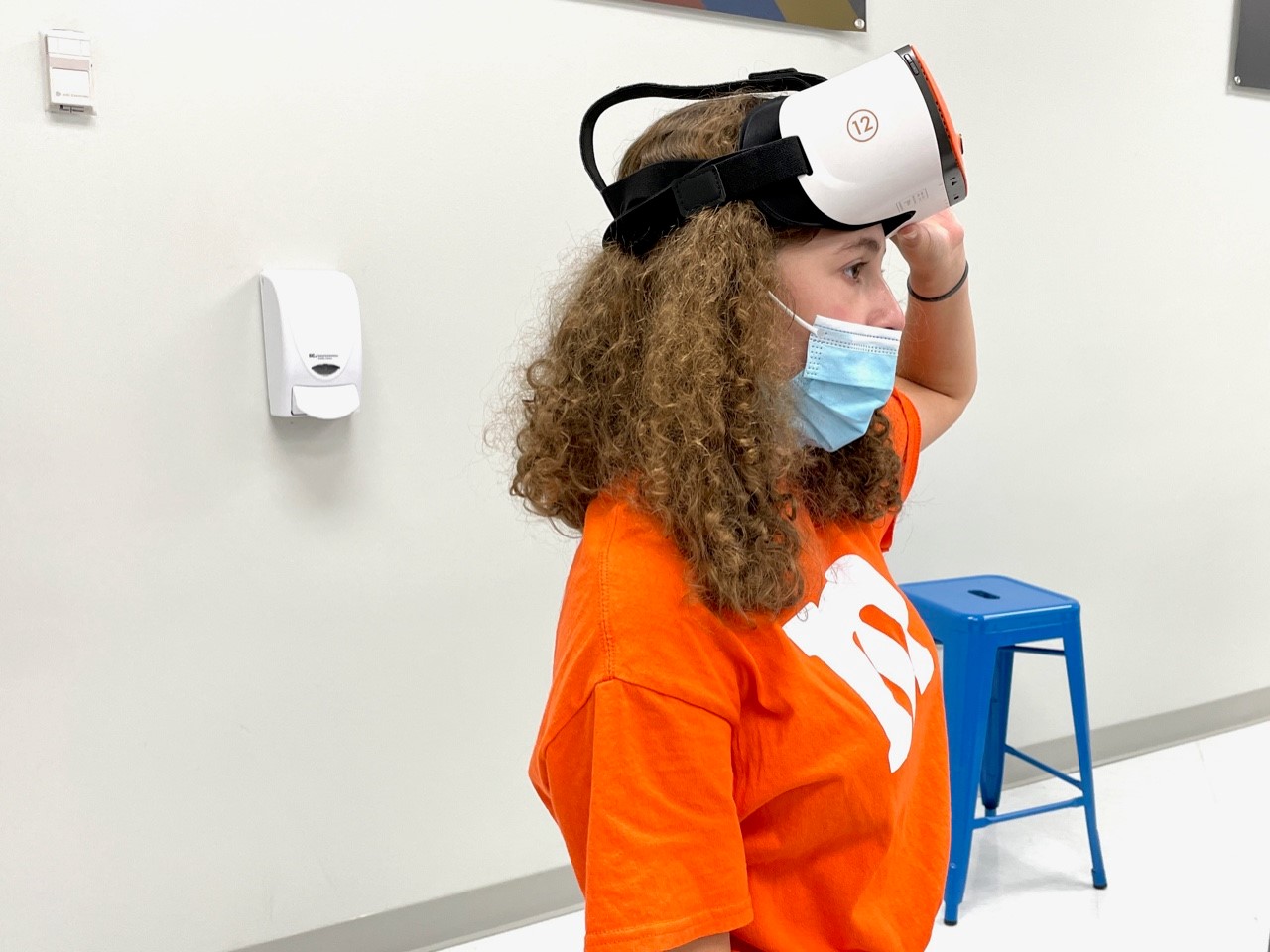
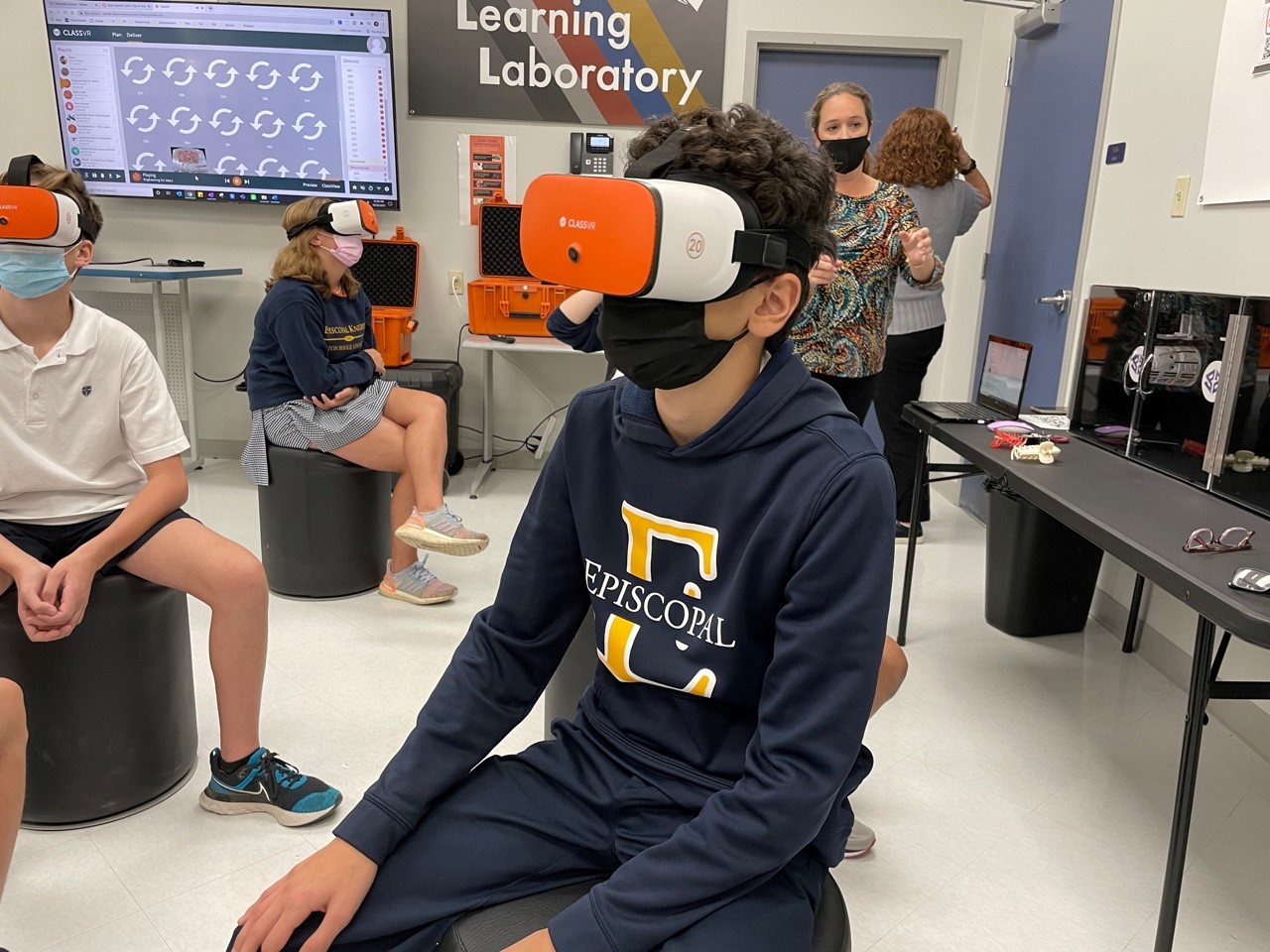
Bergeron and Chenevert say technology use in education will likely continue to flourish in the years to come. “We’re just touching the surface of this,” says Chenevert. Future advancements will likely see students using handheld devices to move about the classroom as they explore virtual worlds. The experiences will also incorporate motion sensory experiences similar to what visitors experience on their favorite rides at Universal Studios.
The Spatial Learning Lab was a thoughtful addition to the QUEST Center, including the Cleanbox that was purchased to sanitize the virtual reality headsets after each use. Chenevert points to the product description which boasts that Cleanbox eliminates 99.999% of contagions without using chemicals, heat or liquid. In only 60 seconds, the Cleanbox technology cleans four headsets using UVC light to safely ensure that they are ready for the next group of students.
Episcopal faculty and staff are ready to engage and educate tomorrow’s leaders. While today these students are exploring Mars using virtual reality, tomorrow they may be traveling to the red planet aboard a ship designed to make the journey. It’s rewarding to think the journey began right here at Episcopal!
The Episcopal School of Baton Rouge 2024-2025 application is now available! For more information on the application process, to schedule a tour, or learn more about the private school, contact us at [email protected] or 225-755-2685.
Posted in the categories All, Middle School.
Other articles to consider
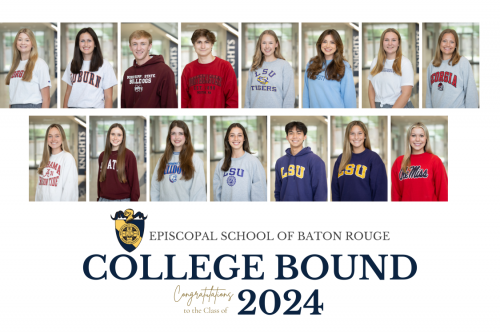 Apr19College Announcements 4.19.24
Apr19College Announcements 4.19.24Please join us in congratulating members of the Class of 2024 as they announce their college enrollment decisions.
See Details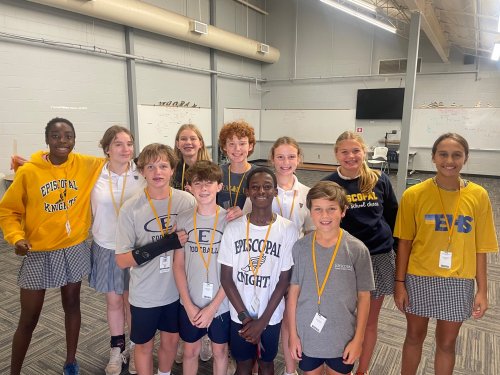 Apr18Middle School Athletic Council Empowers Student Athletes
Apr18Middle School Athletic Council Empowers Student AthletesA dedicated group of students is creating excitement and awareness around Middle School sports.
See Details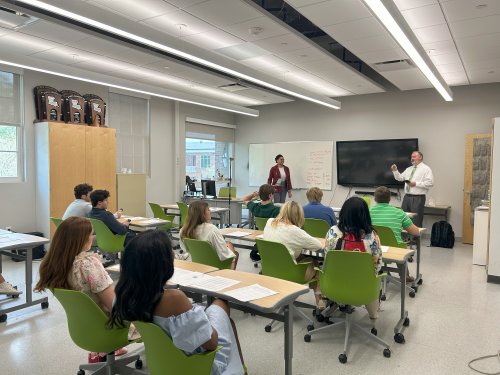 Apr17College Perspectives Gained in Annual Case Studies Program
Apr17College Perspectives Gained in Annual Case Studies Program Read more about how the College Counseling Case Studies event helps students stand out on their admission application.
See Details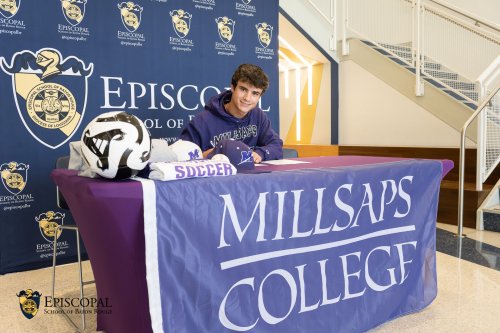 Apr12Alden Romano to Play Soccer and Baseball at Millsaps College
Apr12Alden Romano to Play Soccer and Baseball at Millsaps CollegeRead more about Alden’s decision to go to Millsaps and how playing three sports in high school has prepared him well for the next level.
See Details
Categories
- All
- Admission
- Athletics
- College Bound 2019
- College Bound 2020
- College Bound 2021
- College Bound 2022
- College Bound 2023
- College Bound 2024
- Counselors Corner
- Episcopal Alumni
- Giving
- Head Of School
- Lower School
- Middle School
- Spirituality And Service
- Student Work
- The Teachers' Lounge
- Upper School
- Visual And Performing Arts











